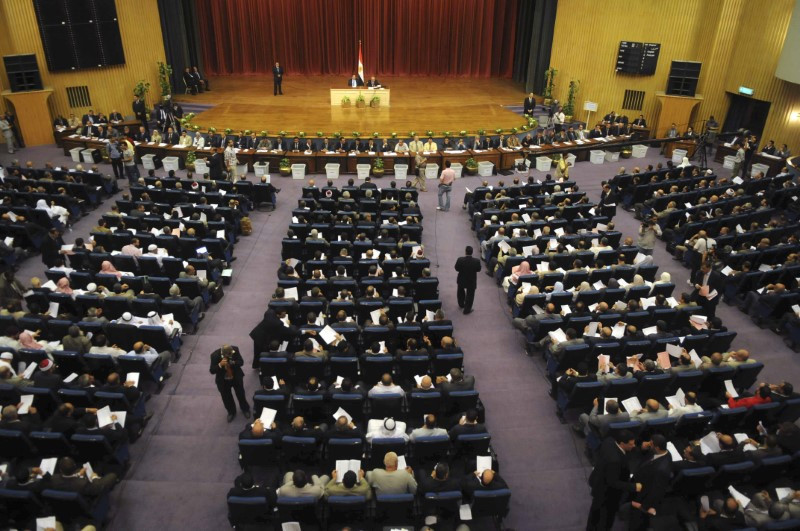Nairobi, Kenya
Thomson Reuters Foundation
Africa has increased the number of women in parliament but still looks set to miss a global goal of gender parity in politics by 2030, a European thinktank said on Thursday.
The study by Sweden’s International Institute for Democracy and Electoral Assistance (International IDEA) found that women occupied 24 per cent of Africa’s 12,113 parliamentary seats in the upper and lower houses in 2020 – up from nine per cent in 2000.
But progress was slow, it said, with women facing a barrage of challenges underpinned by entrenched sexism, be it a dearth of opportunity, lack of economic support or outright prejudice.

A general view of the two chambers of parliament meeting to elect the 100 members of the constituent assembly in Cairo, Egypt, on 12th June, 2012. PICTURE: Reuters/Stringer /File photo.
The report said this would make it hard to meet a global development goal agreed by United Nations states of achieving equal opportunities in political decision making by 2030.
“The burden of household chores and inequitable access to higher education limit women’s ability to enjoy the opportunities and benefits of citizenship as men on an equal footing in the political sphere,” said the report.
“Political parties are themselves deeply patriarchal, male-dominated entities that have been slow to transform.”
Gender experts say women winning a voice at the top will have a trickle-down effect, helping counter generations of abuse and discrimination, as well as changing mindsets that keep women subservient.
The study found female representation in African parliaments was slightly below the global average of 26 per cent, and much lower than women’s share in the Americas, at 32 per cent, and Europe’s 30 per cent.
There were also significant differences across the continent’s 54 countries, with Rwanda having the highest representation of female lawmakers in the world at 61 per cent compared to Nigeria, which only has six per cent.
The study also found regional disparities.
The Horn of Africa performed best with an average 33 per cent women in parliament, while countries in southern Africa had 29 per cent, and West Africa had the lowest, with a share of just 16 per cent.
Malawi’s former president Joyce Banda said the findings were a “wake-up call” showing a mountain of work ahead for Africa to achieve gender equality in its political institutions.
“This global agenda to be achieved by 2030 will remain a dream if Africa does not change its systems, practices and policies to ensure that more women sit on the political decision-making table,” wrote Banda in the report’s foreword.
“Deeply entrenched patriarchy in our African society has posed many barriers for women in political participation. It is time that the worth of a woman is counted beyond so-called ‘traditional’ roles.”






